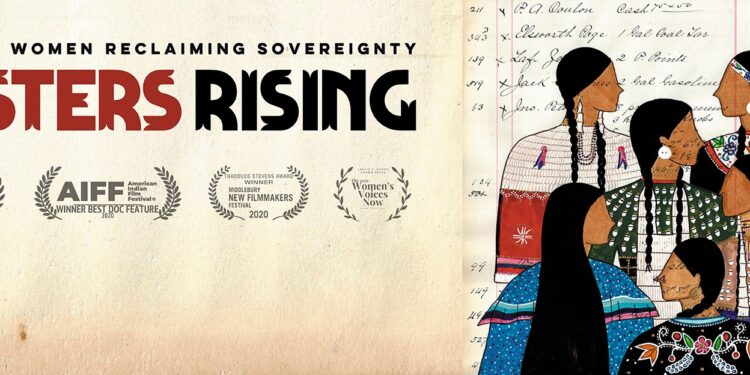“There’s only a few of us that speak out. Then you know they say, ‘Oh they’re radical’. Are we really radical? Or are we just trying to get out the truth?” Mandan, Hidatsa and Arikara Nation Special Agent Dawn White
Editor’s Note: The following story discusses difficult topics pertaining to sexual assault, and rape. These topics may be difficult to process for some readers. Please take care of yourself.
OKMULKE, Oklv. – The topic of sexual assault is a hard one to discuss, especially within Indian Country. On top of the severity of the subject matter, many sexual assaults on Native American reservations go unreported due to limited jurisdictional authority to prosecute non Native American perpetrators. One in three Native American women report being raped, making them 2.5 times more likely than other groups. April is designated as Sexual Assault Awareness Month. The Muscogee (Creek) Nation Center for Victim Services hosted events all throughout the month, including a screening of the documentary film, “Sisters Rising”, featuring Mvskoke citizen Sarah Deer.
A lawyer and advocate for sexual assault victims, Deer is featured in the film alongside five other women who have either experienced sexual violence personally, or know someone who has. The film tells the story from the perspective of Native women, who are disproportionately the victims of sexual violence by non-Native perpetrators. Oftentime these victims will never see justice due to limited forensic examination resources, as well as lack of prosecution and health resources. According to Deer in the film, protecting fellow Native women is more than just a job to her.
“I started working on the issue of violence against Native women as an undergraduate law student at the age of 20,” Deer said. “And ever since then, I have tried to build my life, my career, my passion, around the lives and safety of Native women.”
Deer goes on to say that alcohol and drug abuse within Native communities can be attributed to trauma stemming from sexual violence; suicides rates as well.
Other subjects featured in the documentary include Dawn White (Arikara), a veteran and tribal law enforcement officer who was a victim of sexual assault in the military. According to White in the film, even in the armed forces women are not always safe from sexual violence.
“It took me a long time not to tell anybody,” White said. “When you’re a female and you first come in, they do tell you the statistics. You have a high chance of being assaulted.”
White now serves her community and helps protect others.
Other sexual assault survivors like Loreline Lacroix (Anishinaabe) have come a long way in overcoming the horrors from their past as well. Not only has Lacroix learned how to heal from trauma, she now helps fellow sexual assault survivors cope and heal as well. According to Lacroix in the film, she now works with women in the Fort Berthold Reservation area.
“You take those traumas and that broken spirit and you somehow try to mend it, and it’s a slow process,” Lacroix said. “Like I tell the women, ‘When you talk to me, you’re talking to me. Anything you divulge to me, stays with me. Anything I can do for you, I’m going to do for you’.”
The documentary goes on to share the stories of Lisa Brunner (White Earth Ojibwe), Chalsey Snyder (Mandan/Hidatsa/Arikara) and Patty Stonefish (Lakota) and their efforts to fight back against sexual violence issues and help others heal from it. Brunner is a sexual violence survivor advocate, Synder is a radio personality and Stonefish is a self-defense coach.
Through these testimonies the documentary is able to share the experience of Native American women dealing with sexual violence on the reservation. The story is told from the perspective of women working across many different professions, communicating that sexual violence is a problem that everyone in the community can fight together against. In spite of the disproportionate sexual violence Native women experience, the film stresses that community is how they heal.
Help is available for survivors of sexual violence. The MCN Center for Victim Services has a crisis line available, which can be reached at 918-732-7979. In addition to events, the department provides court advocacy, crisis intervention and counseling referrals.





